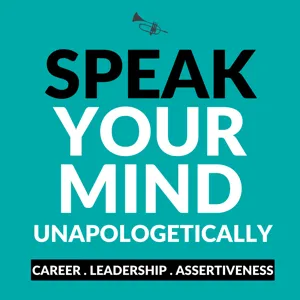Podcast Summary
Effectively Evaluating Startup Ideas: Learning to evaluate ideas like investors can increase your chances of building a successful startup. Even companies without traction or code can be accepted based on strong ideas.
Evaluating startup ideas is a crucial skill for entrepreneurs, whether they're just starting out or looking to pivot. In the first lecture of Startup School 2019, Kevin Hale shares insights on how to effectively evaluate ideas. This content was developed in response to feedback from last year's course, where many participants were struggling with deciding which idea to pursue due to lack of conviction. Evaluating ideas is essential for knowing when to pivot and for improving existing companies. Contrary to popular belief, Y Combinator accepts companies at various stages, even those without traction or code written. For instance, Zenefitz and Reddit were accepted based on ideas alone. So, learning how to evaluate ideas like investors do can significantly increase your chances of building a successful startup.
Investors focus on potential for growth when evaluating startups: Investors aren't looking to dislike your startup idea, they're trying to understand how it could become a rapidly growing, billion-dollar company. Focus on sharing your vision for growth and the unique aspects making it scalable.
Investors like Paul Graham at Y Combinator are not looking for reasons to dislike your startup idea. Instead, they are trying to understand how it could potentially become a successful, rapidly growing company. The definition of a startup, according to YC, is a company designed to grow very quickly. If you're not aiming for significant growth, then it's considered a small business. To identify potential winning startups, investors focus on the non-obvious aspects of your idea and use their imagination and optimism to see how it could become a billion-dollar company. They then pitch these possibilities back to you to help guide you on the right path towards growth. So, when speaking with investors, focus on sharing your vision for growth and the unique aspects of your idea that make it potentially scalable.
Three parts of a startup idea: problem, solution, and insight: A strong startup idea has a popular, growing, urgent, expensive, mandatory, and frequent problem, a viable solution, and a compelling insight.
A startup idea is a hypothesis about a growing company, composed of three parts: the problem, the solution, and the insight. The problem defines the initial conditions, explaining why the company can grow quickly. Good problems are popular, growing, urgent, expensive, mandatory, and frequent. The solution is the experiment to grow rapidly within these conditions. The insight explains why the experiment will be successful. When discussing the problem, consider its popularity, growth rate, urgency, expense, necessity, and frequency. A strong startup idea should exhibit several of these characteristics, and a lack of growth or excitement may indicate a missing element.
Identifying the right problem to solve is crucial for a startup's success according to BJ Fogg's behavior theory: To ensure startup success, focus on problems with large user bases, growing markets, and immediate solutions that require frequent use and have significant costs or changing regulations.
Identifying the right problem to solve is crucial for a startup's success. According to BJ Fogg's behavior theory, to change someone's behavior, motivation, ability, and a trigger must align. Startups often struggle with low engagement or retention due to an absence of effective triggers. Sending regular reminders, notifications, or finding ways to bring users back to the app at the right time can help overcome this challenge. Ideal problems for startups are those with large user bases, growing markets, and immediate solutions. These problems often involve significant costs, changing regulations, or frequent use. Facebook and Slack are good examples of solutions that address problems requiring frequent use. The best advice for startups is not to start with a solution, but rather to identify a problem worth solving that aligns with Fogg's theory.
Identify the problem before finding a solution: Start by defining the problem to avoid inefficient growth and gain investor interest. Look for at least one unfair advantage to increase chances of success.
It's essential to start with a clear problem definition before jumping into finding a solution. This approach, known as SISP or "solution in search of a problem," can lead to inefficient growth and difficulty in gaining investor interest. Instead, identify the problem first, and then use the necessary tools to solve it. A company's unfair advantage, which explains its potential for rapid growth, is crucial for investors. This advantage can come in various forms, such as a unique team, intellectual property, business model, or market position. Aim for at least one unfair advantage to increase your chances of success.
Having a unique unfair advantage is essential for startups seeking investment: A 10x better product is the ideal unfair advantage for startups to impress investors, but having unique expertise or being in a growing market can also help
Having an unfair advantage is crucial for a startup's success in attracting investors. This advantage can come from various sources, such as having unique expertise, being in a growing market, or having a 10x better product than competitors. However, having just one of these advantages may not be enough. Being a super expert in a common field, such as being a product manager at Google or an engineer at Microsoft, does not automatically give you an unfair advantage. Having a PhD in a specific area, especially if it involves a patent for curing a disease, is a strong founder advantage, but it should not be the only one. Being in a growing market is beneficial, but having a product that is only 2x or 3x better than competitors is not enough to impress investors. A 10x better product is the ideal unfair advantage. It should be clear and impressive, making potential investors go "wow, this is so much better than anything else I've ever seen." Having a sustainable acquisition model is important, but if paid acquisition is the only way a company has grown, investors may discount that channel of growth. In summary, having a unique unfair advantage is essential for startups seeking investment. This advantage can come from various sources, but having a 10x better product is the ideal scenario. It's important to remember that having just one advantage may not be enough, and having a clear and impressive product is crucial for impressing investors.
Focusing on free growth strategies and building a sustainable competitive advantage in the early stages of a startup: Leverage word-of-mouth marketing, find no-cost acquisition paths, and identify network effects to grow a startup. Understand the difference between threshold and miracle beliefs to make informed decisions.
In the early stages of a startup, focusing on free growth strategies and building a company with a sustainable competitive advantage are key to long-term success. These strategies include leveraging word-of-mouth marketing, finding no-cost acquisition paths, and identifying network effects. Additionally, understanding the difference between threshold beliefs (can the company even build the product?) and miracle beliefs (can the company succeed beyond expectations?) can help founders make informed decisions about their business. By prioritizing these factors, startups can increase their chances of becoming significant players in their industry.
Identifying a market problem and offering a unique solution: Successfully addressing a market problem with a unique solution can lead to a thriving business. Y Combinator did this by helping founders secure funding without industry connections, providing valuable resources, and leveraging existing networks.
Identifying and addressing a market problem with a unique solution can lead to the creation of a successful business. Paul Graham's example with Y Combinator (YC) illustrates this concept perfectly. YC aimed to solve the issue of founders struggling to raise funds without industry connections by offering an open application process. The company's success was due to several factors, including the expertise of its founders, the belief in the potential of technology companies, and the cost-effectiveness of starting a software business. By providing funding, advice, and access to investors, YC attracted talented founders who might not have had the opportunity otherwise. Additionally, Graham's existing reach and audience allowed him to acquire talent relatively cheaply and build a powerful network that grew more valuable over time. This case study demonstrates the importance of identifying a market problem, offering a unique solution, and leveraging existing resources to create a successful business.
Identifying a clear problem and offering a unique solution: Addressing a common challenge with a freemium model, a passionate audience, and a unique solution can lead to significant growth and high returns for a startup, even with minimal funding.
Identifying a clear problem and offering a unique solution, backed by a passionate audience and a freemium business model, can lead to remarkable growth and high returns for a startup, even with a small team and minimal funding. The speaker's example of their online form and survey builder demonstrates this, as they addressed the challenge of non-technical individuals needing to create forms for their websites without coding skills. By offering a drag-and-drop visual editor, they solved this problem and gained a significant market advantage. Additionally, they built an audience through a blog before launching their product, which helped spread the word and eliminate the need for salespeople. The result was a product used by various industries, markets, and verticals, with an acquisition that yielded a 30,000% return on investment, despite only raising $118,000 throughout the company's life. To apply this lesson, consider your problem, solution, and unfair advantage, identify any gaps, and focus on proving and improving these areas to achieve success.
Validate business hypothesis through user engagement: Speak with potential users to confirm or disprove initial assumptions, gain valuable insights, and inform next moves. User engagement is key to proving or disproving a business hypothesis.
When starting a business, it's important to view your idea as a hypothesis that needs to be tested. To begin validating your hypothesis, the first step is to engage with potential users. This process of speaking with users helps to confirm or disprove your initial assumptions about the market demand and the value proposition of your product or service. By listening to their feedback and observing their behavior, you can gain valuable insights that will inform your next moves. Remember, the goal is to learn as much as possible from your users, and be open to pivoting or adjusting your approach based on the information you gather. So, when starting out, focus on user engagement as a key method for proving or disproving your business hypothesis.



![Robs Rant: Why Your Problems Are NOT Problems [Business, mindset, entrepreneur, disruptors]](https://www.podcastworld.io/podcast-images/disruptors-kt0uj0xy.webp)


